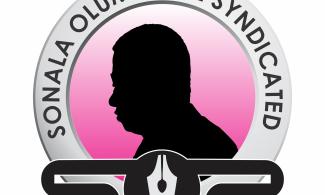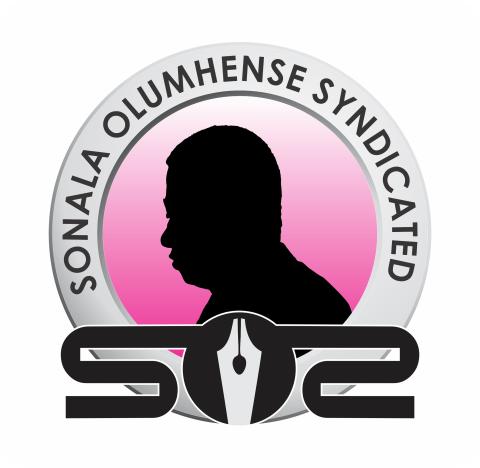
Undeterred, as he announced his search for another term in November 2014, he declared in a speech at Abuja’s Eagle Square he had delivered on all of them.
“I am convinced that I have kept my pact with Nigerians…With your tremendous support, we have collectively done so much in the last three and half years…”
Nigeria’s former president, Mr. Goodluck Jonathan, is setting up a new storefront, to be known as The Goodluck Jonathan Foundation.

“I am back to work to continue to serve and dedicate my life to promoting peace and prosperity for all,” he said in a letter to his mentor-turned-tormentor, former President Olusegun Obasanjo.
“I will be devoting the rest of my life and energy to making the world a better place,” he said of the foundation, which will be launched next year.
I would have congratulated Mr. Jonathan on this idea. If highly-placed persons such as he—perhaps beginning from the governorship level—undertook projects of this nature, Nigeria would be a wonderful place to live in.
The problem is that Mr. Jonathan is putting the horse before the horse’s mother, and his mission cannot be taken seriously
A foundation is not just a registration paper. It is not just an office. And it is certainly no assembly of people trained to say “Yes sah!”
In other words, I do not believe that Mr. Jonathan is setting up a foundation which is capable of making his hometown of Otuoke better than it was when he left for the governorship, let alone a foundation for the grand purpose of “making the world a better place.”
And the reason I doubt him is that ever since his emergence as a state governor in 2006, he has left the most comprehensive record of insincerity of a Nigerian leader since 1960.
An absence of credibility is not a good foundation upon which to establish a foundation to make the world a better place, or to promote peace and prosperity for all. It seems simple enough to see that this is the very reason that, last March, Nigerian voters asked Mr. Jonathan to leave Aso Rock without delay.
“One of the cardinal commitments of this administration is our commitment to good governance, accountability and transparency,” Mr. Jonathan said in February 2010 as he took the Acting Presidency. “We shall continue to pursue these policy objectives with all the seriousness they deserve.”
A few months later, President Umaru Yar’Adua died, and the entire farm became Mr. Jonathan’s.
“Our total commitment to good governance, electoral reform and the fight against corruption would be pursued with greater vigour,” he declared after taking the oath of office, pledging to “enshrine the best standards in [Nigeria’s] democratic practice…”
From that speech on, Mr. Jonathan had five years to demonstrate his commitment to that dream. Five years: one borrowed from the Yar’Adua presidency, and four that he chose to seek for himself.
Five years in which he could have made the lives of Nigerians better. Five years in which he could have bequeathed peace and prosperity.
It is on the basis of his achievements in those years that his words about the mission of his foundation would have found traction, not laughter.
What he sowed in those five years, sadly, was the legacy of incoherence, incapacity and misdirection for which the same voters who in 2011 had already had enough of his party they said they were voting for him, as a person, rejected him resoundingly last March.
Hopefully, Mr. Jonathan understands why he was rejected. The people who thought in 2011 he had character and integrity, thought differently in 2015. He had failed to understand that by leadership, he was expected to lead, including by example.
But: “I don’t give a damn,” he famously swore in 2012 when asked about his failure to declare his assets, swearing never to do so even if he was “criticized from here to heaven!”
He provided two head-scratching explanations for his outburst. The first: that in 2007 when he declared his assets upon taking office as Vice-President, he had done so only because President Yar’Adua insisted.
The second: that his refusal to declare his assets was a matter of “principle,” because should he declare, “it is what I tell you that you will even believe!”
The Nigeria leader appeared not to understand what character or integrity really meant. He seemed to interpret power as simply the authority to do as you like, rather than as being positioned to serve.
Of corruption, he said it was “exaggerated” in Nigeria, and that stealing was not corruption. All of that granted “legitimacy” to anyone and everyone who wanted to steal, and—as it is turning out—loot they did.
On May 22, 2011, before he took office, I chronicled Mr. Jonathan’s electoral promises that he had showered all over Nigeria in order to clinch the presidency. The most significant, I said, was the spectacular one he offered in Onitsha on February 27.
"I do not make empty promises in my campaign because whatever I promise to do, I had already carried out adequate study to make sure I can accomplish it in the next four years," he told a roaring crowd that had heard him list the major changes he was about to bring to their lives.
Enough people believed Mr. Jonathan’s words to have had him crowned the following week.
Four years later, Mr. Jonathan had barely touched any of those promises. Undeterred, as he announced his search for another term in November 2014, he declared in a speech at Abuja’s Eagle Square he had delivered on all of them.
“I am convinced that I have kept my pact with Nigerians…With your tremendous support, we have collectively done so much in the last three and half years…”
Nigerians provided an unmistakable rebuttal four months later, bringing us to the present, where the former leader has now found the need to reinvent himself as his successor implements an interrogation of his era.
It seems that this is the challenge that Mr. Jonathan ought to be focusing on, and assembling some formidable lawyers and accountants for the purpose. Instead, he has sought to re-engage a man who is probably best-remembered for costing him his place at the top of the political food chain.
Mr. Jonathan ought to have written his letter to the people of Nigeria, not to Obasanjo. It is the people who have some say in whether Jonathan, having thrown away his opportunity to serve, has any further relevance in their lives, including the road to peace and prosperity.
Mr. Jonathan had a chance to bring genuine transformation, as true statesmen and leaders do; he didn’t give a damn. He had a chance to engage in the promotion of peace and prosperity for all, as true leaders do; he didn’t give a damn.
The only letter Mr. Jonathan ought to have sent to his former mentor is a ‘thank you’ note, to acknowledge Obasanjo’s manipulations that took him off road to the Code of Conduct Bureau Tribunal in 2006, and to the presidency.
Leaders who serve with honesty and commitment will always have a place in the hearts of the people, even when they fail. It becomes an insult when it is also suggested that—in addition to the poverty and deprivation in which the people are left to rot, or because of them—the people are also stupid.
• [email protected]
• Twitter: @SonalaOlumhense